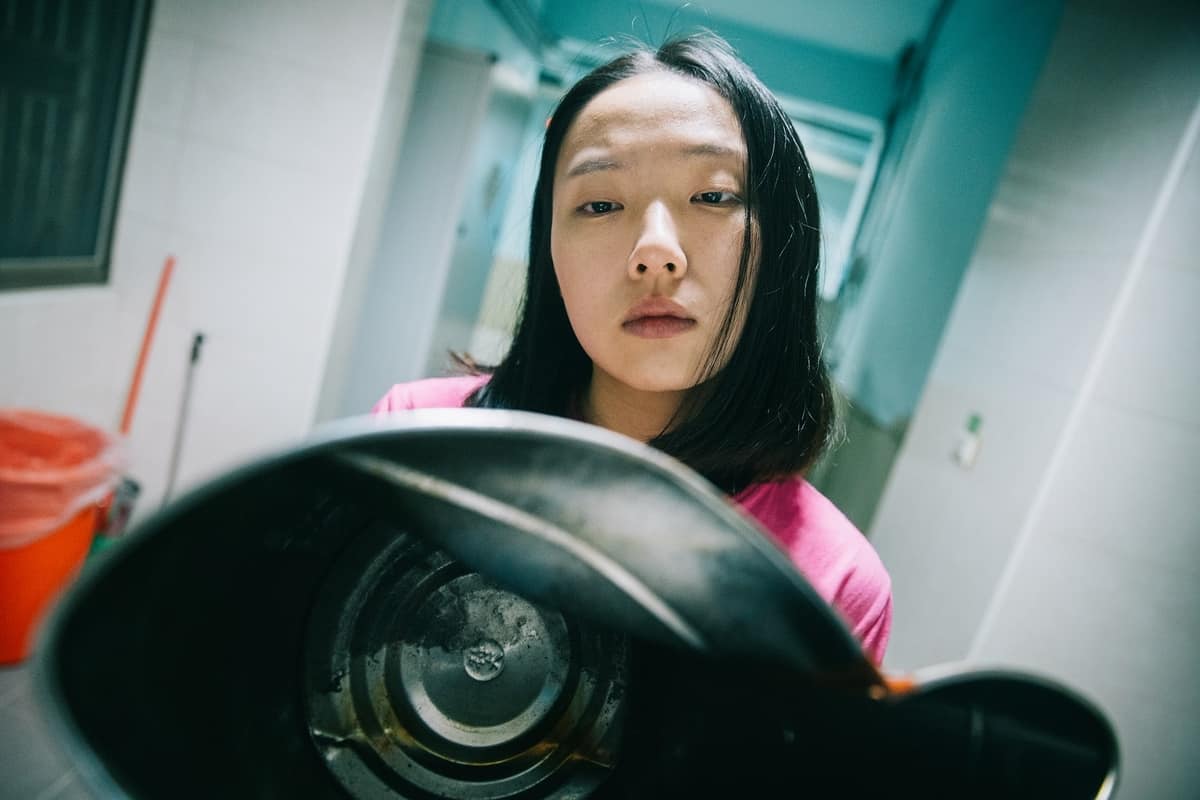Takahisa Zeze has secured a place in the history of (pink) cinema as one of The Four Heavenly Kings but also for a number of productions that highlight the levels of quality the films of the category can reach. “No Good Men” does not exactly reinvent the genre, but definitely stands on one of the top levels.
No Good Men is available from Pink Eiga
By Using the code AMPFriend, you get a 25% price-off on all products of the website including subscription
The story focuses on Kumiko, a young woman who works at a travel agency, and retains an affair with her married boss. Kumiko is just searching for love, but all she finds in a megalopolis where alienation is the rule, is sex, to the point that she equalizes one with the other, as we watch satisfying her need for human warmth through a number of random men. A cleaner who works in her company, sees her one day having sex with her boss and becomes infatuated with her, eventually using a number of occasionally despicable tricks to approach her. One night, he follows her to a laundromat, and it is there where he makes his move, which, somewhat surprisingly, lead to the two of them starting an affair, which is, though, anything but calm. At the same time, Kumiko receives phone calls from a man who plays her erotic adventures to her, as he has recorded them, while the cleaner seeks to exact revenge from anyone that has caused her trouble.
Evidently, the narrative here is much thinner than the majority of films from Pink Eiga we have reviewed and the focus on sex scenes more intense; however, Takahisa Zeze still manages to make a number of social comments about his protagonists. The aforementioned alienation and the extremes people reach into in order to achieve human contact is a central comment, with the film also using the concept to justify, to a point at least, the actions of Kumiko and the cleaner, as the first has turned into a prostitute essentially and the second to a stalker. In such a setting, the eventual violence, that, after a point, surrounds both protagonists, seems like the only logical outcome.

At the same time, Zeze's protagonists are portrayed as filled with flaws, essentially rather unlikeable, which also adds to the alienation they feel. The parallel with bugs, which becomes a recurring theme in the movie, seems to state, that they also roam around their lives without purpose, like parasites or aliens who just happened to exist in their particular environment in their effort to survive, while their lives are essentially led by instincts , which, inevitably, lead them to sex and violence, in a path to nowhere, where only death is waiting in the end.

On a secondary element, that is only evident through a brief scene in the beginning, Zeze also makes a comment about the extreme antagonism between corporations in the capitalist environment, with the fact that the small fish cannot compete with the lowering of the prices the big ones occasionally implement, being quite eloquent.
Yohta Kawase gives a rather convincing performance as the loser who finally gets a break and is willing to go to extremes to avoid losing it. Shoko Kudo as Kumiko is also quite good in presenting her melancholic depression. Their chemistry is also on a good level, as exhibited in the scene in the laundromat and the way the cleaner approaches her, and in the strangling scene.

The focus, however is on the sex scenes, which are quite steamy, numerous and lengthy, benefitting the most by Shoko Kudo's impressive body and particularly her incredible legs. The way these scenes are portrayed and captured by DP Koichi Saito is also on par with the general aesthetics of the movie, since this is definitely sex and not lovemaking, maybe with a few exceptions. The scene in front of the glass wall in particular is impressively shot, as much as the way the cleaner is portraying peaking on what is happening.
“No Good Men” may be a sex film foremost, but there is enough depth here to satisfy fans of the more layered pinku movie, although those who are simple looking for titillation will definitely not be disappointed.














